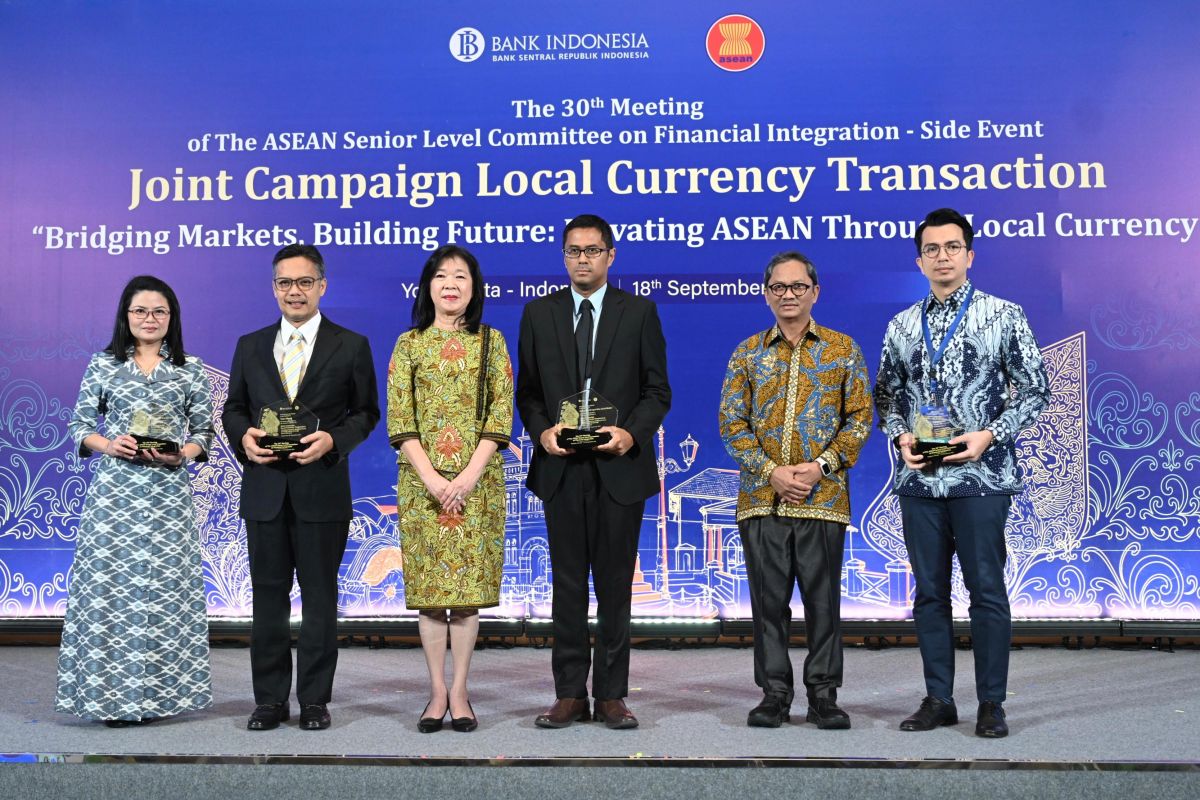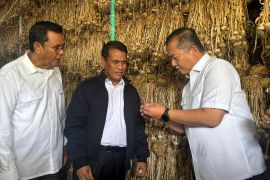The use of local currencies in cross-border transactions is expected to strengthen national macroeconomic resilience while reducing vulnerability to global exchange rate fluctuations.Jakarta (ANTARA) - Bank Indonesia (BI) stated that Indonesia continues to strengthen its commitment to using local currency in cross-border transactions (LCT) with ASEAN countries, which recorded transactions of US$14.1 billion as of July 2025.
BI Deputy Governor Filianingsih Hendarta said in a statement here on Thursday that this initiative plays an important role in encouraging more efficient trade and investment flows.
The initiative could also reduce the risk of exchange rate volatility and support financial market–deepening efforts.
With these various benefits, sustainable and inclusive ASEAN financial integration and economic growth can be achieved.
In the meantime, Bank of Thailand International Department Director Nithiwadee Soontornpoch emphasized that the potential for increasing the use of local currency remains very large.
This is in line with the large portion of Thailand's international trade with ASEAN countries.
Meanwhile, Bank Negara Malaysia Assistant Governor Mohamad Ali Iqbal Abdul Khalid stated that close collaboration between central banks has driven the trend of increasing use of local currencies in bilateral trade, which will become a catalyst for regional growth in the future.
Until July 2025, LCT performance recorded transactions of US$14.1 billion (equivalent), growing 112 percent year on year (yoy) compared to US$6.7 billion (equivalent) in the same period the previous year.
This figure, said BI, is equivalent to 87 percent of the total transactions throughout 2024, which reached US$16.28 billion (equivalent).
From the user perspective, the number of LCT customers will increase to an average of 7,568 per month in 2025, compared to 5,020 per month in 2024.
BI began cooperation on the use of local currencies in 2016 by signing the MoU on Local Currency Settlement with Malaysia and Thailand.
The initiative was officially implemented in 2018 and has since grown rapidly to include six partner countries.
BI, Bank Negara Malaysia, and Bank of Thailand have agreed to harmonize the LCT Operational Guidelines as a regional reference to improve consistency and scalability. This guide makes operations more standardized, transparent, and facilitates negotiations between ASEAN countries.
The use of local currencies in cross-border transactions is expected to strengthen national macroeconomic resilience while reducing vulnerability to global exchange rate fluctuations.
Related news: Freeing ASEAN from US dollar reliance
Related news: ASEAN task force to devise transition for currency transactions
Translator: Rizka Khaerunnisa, Katriana
Editor: M Razi Rahman
Copyright © ANTARA 2025












